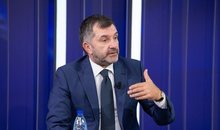
 Flash News
Flash News
Gunfire in Durres, a 30-year-old man is injured
Accident on Arbri Street, car goes off the road, two injured
Arrests of "Bankers Petrolium", Prosecution provides details: Exported and sold 532 billion lek of oil, caused millions of euros in damage to the state
Ndahet nga jeta tragjikisht në moshën 28-vjeçare ylli i Liverpool, Diogo Jota
Posta e mëngjesit/ Me 2 rreshta: Çfarë pati rëndësi dje në Shqipëri

Boshko Jakshic / Politika
These days, the graffiti "When the army in Kosovo returns" was seen all over Russia, while their authors tried to get the message of problematic solidarity to Serbia as soon as possible, where Russophile patriots welcomed it as a significant affirmation of friendship between the two peoples.
The unofficial interpretation of this message could be that the Russian Federation and Vladimir Putin support Serbia's military attack on Kosovo to return the stolen territory to the mother country. Just as Russia, with its army in 2014, subjugated and annexed Crimea. In one case, it protects sovereignty and territorial integrity, while in the case of Ukraine, it tramples on it; this is already a privilege of the world powers.
Behind the message hides Moscow's pragmatic interest in drawing Serbia into a military conflict in Kosovo—no more, no less. The problem is that the recipients of the message here, blinded by emotion, cannot read the gist. Russians remember Serbs when they need them. They can do whatever they want with us when they know who they are dealing with. We call them brothers; they rank us as the ten most beloved people.
The Russians always had it in their hands to protect their Serbian brothers. In the funny month of 1999, after the forced march from Bosnia, they took Prishtina's "Sllatina" aerodrome. American General Wesley Clark, then NATO commander in Europe, ordered the occupation of the airfield so that the Russians would leave. British General Michael Jackson rejected the order with the words: "I have no intention of starting World War III for you." The Russians had the opportunity to stay, but in the spring of 2003, Moscow decided to withdraw Russian soldiers from the territory of former Yugoslavia. Kosovo was left in the hands of KFOR forces while the Russians undertook a verbal chest-beating campaign, promising to defend Serbia in the Security Council.
Now, the creators of hybrid operations in the Kremlin, using the efficient propaganda machine, advise that Serbia return the army to Kosovo - which would cause a military conflict of unprecedented proportions. Moscow doesn't care that this army would immediately turn into a plastic bag. It will be to her advantage to ease the pressures she faces because of the aggression in Ukraine.
The promotion of the "return of the army" is accompanied by the idyllic message "Russians and Serbs are brothers forever," written in two languages and placed in the form of plaques in many locations around Moscow, including the building of the old media house "Rasia Sjevodja" (Russia today) in one of the oldest parts of the city.
Putinophiles here are ecstatic. I'm just reminding them: as far as I've heard, even Ukrainians consider Russians as brothers. The hot-headed Balkans do not know the cold northerners. They continue to unquestioningly believe that Russia is the biggest donor to Serbia, although its donations are 0 (in words: zero)
How easily many chapters of history that say that the Russians have always and exclusively been guided by their interests, even when we presented them as "brothers," destroyed? Many people here do not know this and do not want to know. They need to remember that during the last war, the Russians gave Croatia weapons that they did not wish to provide to Serbia. They forget how easily Putin announced that he is ready for the Kosovo-Donbass trade.
The above slogans written on the walls are dangerous propaganda in a country which, precisely the events in Kosovo in 1999, provided it with an influence it had not had for decades. The Kremlin, based on the foundations of Pan-Slavism and Pan-Orthodoxy, has become Serbia's closest ally in Europe (apart from Belarus) and cunningly capitalizes on the fact that various citizens in this country celebrate Vladimir Putin's birthday and would be happy to see it as leader of Serbia. As the only defenders of God and orthodoxy on earth, the Russians and Serbs win the war against the Western Satanists who await the fire of hell.
The regime's media immediately agreed to spread the messages broadcast by Russia Today, which was banned in Europe. We must be disappointed that the abovementioned banners appeared in Moscow, St. Petersburg, Yekaterinburg, Saratovo, Tyumen, and Orel. Putinophiles here interpret them as a sign that Russian people are behind Serbia. Pessimists like my work see all this as militant marketing. I care what will be said now on TV Pink.
The Russians know very well what a storm they raise with the slogan "When the army returns to Kosovo," which is a line from the poem "The Kosovar girls are reaping the rye," which Metropolitan Amfilohije has changed, not only in Serbia but also in Montenegro and Republika Srpska. Activists plastered this banner displayed in Belgrade with lime to prevent it from being seen, but very soon, it appeared again and even in dozens of places throughout Serbia.
The Russians persistently play the Kosovo card by exploiting the emotions of a part of the Serbian people. They appear as patron saints—external guardians of the Kosovar conflict, guardians of the keys to Serbian Jerusalem. And everything went well, as evidenced by the enthusiasm and inspiration from the slogans of a part of the public opinion.
The methodology is already proven. On the day of the declaration of Kosovo's independence, on February 17 of this year, a solidarity rally was held in Moscow in front of the Serbian embassy. Occasional messages were read: "NATO is the killer of the Slavic world," "Kosovo is Serbia," and "Russians and Serbs are brothers forever."
In July, at the meeting between Crvena Zvezda and Zenit in St. Petersburg, the slogan "Russians and Serbs are brothers forever" was displayed, while a little while ago - thus proving the orchestration of this campaign - the fans of the Spartak club in Podmoskovlje presented the slogan "When the army of return to Kosovo."
The banner inviting the army to return to Kosovo is a dangerous threat. Call for the battle of Kosovo in the true sense of the word: the Turks have returned there after two centuries. They are in the Sultan Murat barracks. Do you think the government will react? I bet not, although this slogan is a finger in the eye for Aleksandar Vucic's favorite thesis that Serbia is a regional stability factor.
Latest news

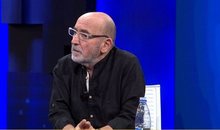
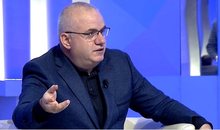
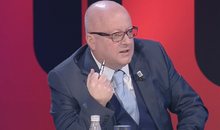

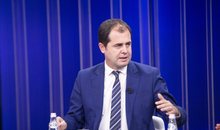
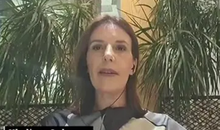
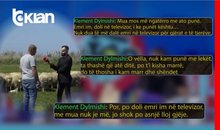
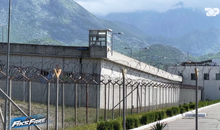

Greece imposes fee to visit Santorini, how many euros tourists must pay
2025-07-03 20:50:37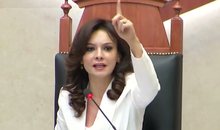
Don't make fun of the highlanders, Elisa!
2025-07-03 20:43:43
Gunfire in Durres, a 30-year-old man is injured
2025-07-03 20:30:52
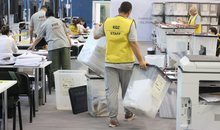
The recount in Fier cast doubt on the integrity of the vote
2025-07-03 20:09:03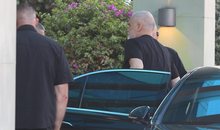
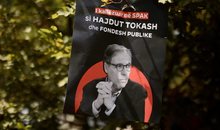

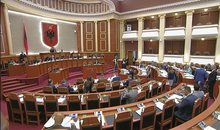

Heatwave has left at least 9 dead this week in Europe
2025-07-03 19:00:01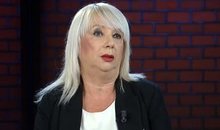

Oil exploitation, Bankers accused of 20-year fraud scheme
2025-07-03 18:33:52
Three drinks that make you sweat less in the summer
2025-07-03 18:19:35
What we know so far about the deaths of Diogo Jota and his brother André Silva
2025-07-03 18:01:56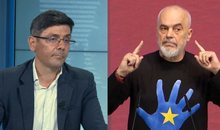
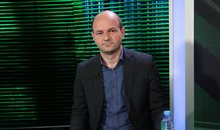
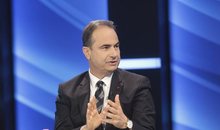

Another heat wave is expected to grip Europe
2025-07-03 17:10:58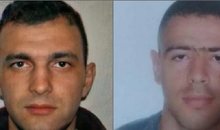
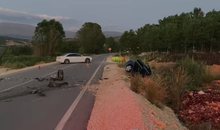
Accident on Arbri Street, car goes off the road, two injured
2025-07-03 16:45:27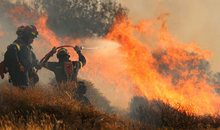
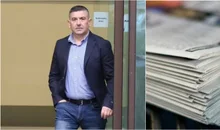
Accused of two murders, England says "NO" to Ilirjan Zeqaj's extradition
2025-07-03 16:25:05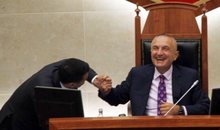
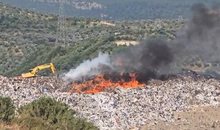
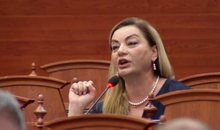
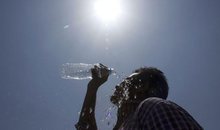

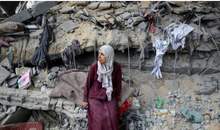
Gaza rescue teams: Israeli forces killed 25 people, 12 in shelters
2025-07-03 15:08:43
Diddy's trial ends, producer denied bail
2025-07-03 15:02:41

Agricultural production costs are rising rapidly, 4.8% in 2024
2025-07-03 14:55:13
Warning signs of poor blood circulation
2025-07-03 14:49:47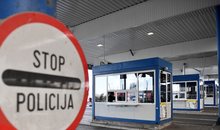
Croatia recommends its citizens not to travel to Serbia
2025-07-03 14:31:19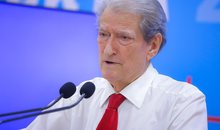
Berisha: Albania is the blackest stain in Europe for the export of emigrants
2025-07-03 14:20:19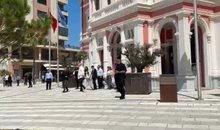
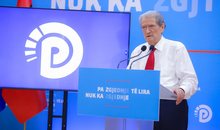
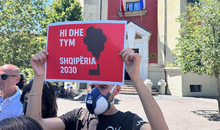
'Ministry of Smoke': Activists Blame Government for Wasteland Fires
2025-07-03 13:59:09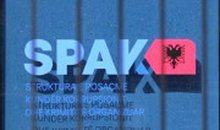

AFF message of condolences for the tragic loss of Diogo Jota and his brother
2025-07-03 13:41:36
Five healthy foods you should add to your diet
2025-07-03 13:30:19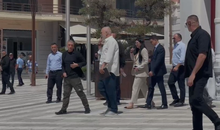
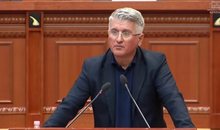
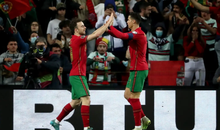
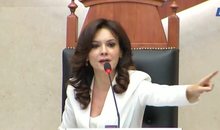
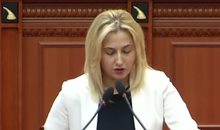

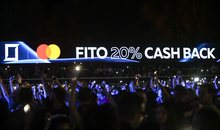
A unique summer season, full of rhythm and rewards for Credins bank customers!
2025-07-03 12:12:20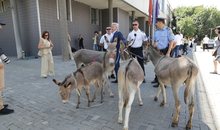

Fire situation in the country, 29 fires reported in 24 hours
2025-07-03 12:00:04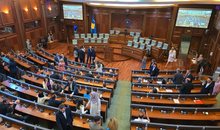
The constitution of the Kosovo Assembly fails for the 41st time
2025-07-03 11:59:57
The gendering of politics
2025-07-03 11:48:36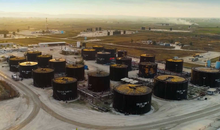
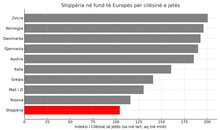
The price we pay after the "elections"
2025-07-03 11:25:39
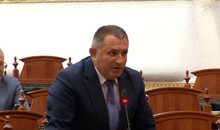
Xhafa: The fire at the Elbasan landfill was deliberately lit to destroy evidence
2025-07-03 11:08:43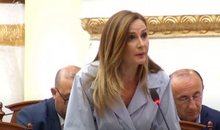

The 3 zodiac signs that will have financial growth during July
2025-07-03 10:48:01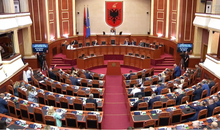
Democratic MP talks about the incinerator, Spiropali turns off her microphone
2025-07-03 10:39:24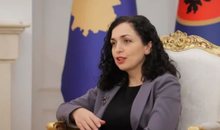

Ndahet nga jeta tragjikisht në moshën 28-vjeçare ylli i Liverpool, Diogo Jota
2025-07-03 10:21:03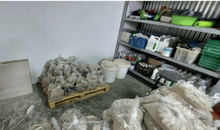
Cocaine trafficking network in Greece, including Albanians, uncovered
2025-07-03 10:10:12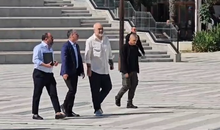
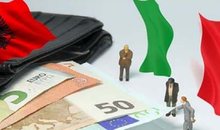
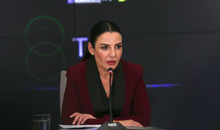
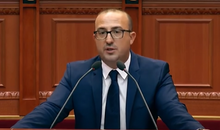
Korreshi: Election manipulation began long before the voting date
2025-07-03 09:39:13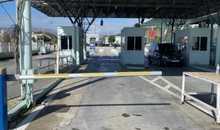
Arrest of Greek customs officer 'paralyzes' vehicle traffic at Qafë Botë
2025-07-03 09:28:41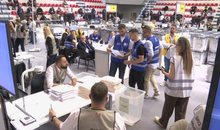
After Tirana and Fier, the boxes are opened in Durrës today
2025-07-03 09:21:10
Enea Mihaj transfers to the USA, will play as an opponent of Messi and Uzun
2025-07-03 09:10:04

Foreign exchange, the rate at which foreign currencies are sold and bought
2025-07-03 08:53:50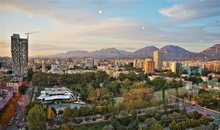
Index, Albania has the worst quality of life in Europe
2025-07-03 08:48:10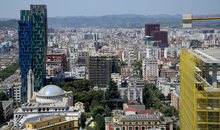
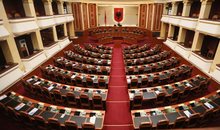
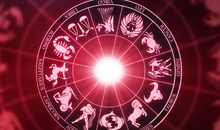
Horoscope, what do the stars have in store for you today?
2025-07-03 08:17:05
Clear weather and high temperatures, here's the forecast for this Thursday
2025-07-03 08:00:37
Posta e mëngjesit/ Me 2 rreshta: Çfarë pati rëndësi dje në Shqipëri
2025-07-03 07:46:48



Lufta në Gaza/ Pse Netanyahu do vetëm një armëpushim 60-ditor, jo të përhershëm?
2025-07-02 21:56:08
US suspends some military aid to Ukraine
2025-07-02 21:40:55



Methadone shortage, users return to heroin: We steal to buy it
2025-07-02 20:57:35
Government enters oil market, Rama: New price for consumers
2025-07-02 20:43:30
WHO calls for 50% price hike for tobacco, alcohol and sugary drinks
2025-07-02 20:41:53



